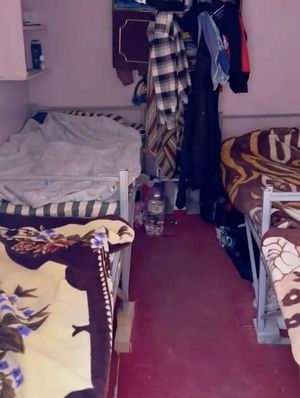In the wake of a significant blackout that plunged Spain and Portugal into darkness on April 28, 2025, residents are grappling with uncertainty as the cause remains undetermined a week later. This situation has led many citizens to prepare for future outages by purchasing survival kits, dynamo flashlights, and solar lamps. The recent surge in demand for backup energy solutions reflects a growing concern over the stability of the electrical system.
Among the retailers responding to this increased demand is Aldi, which is set to sell solar lanterns priced at 9.99 euros on May 10 and 11, 2025. These lanterns feature a blend of industrial and retro designs, available in black, red, and green, and are perfect for illuminating outdoor spaces without relying on the electrical grid. The solar lanterns can be hung from ceilings or placed on tables, making them versatile for various settings.
Aldi is also offering rechargeable lamps for 7.99 euros, which can serve as ambient lighting and are available in several colors including beige, black, and olive green. For those looking to enhance their outdoor lighting, a retractable light chain is available for 9.99 euros, capable of being charged via solar energy or USB. This light chain has a length of 10 meters and can provide illumination for up to six hours, making it ideal for camping or outdoor gatherings.
As the blackout incident continues to resonate, many consumers are also investing in portable solar generators. Models such as the Bluetti EB3A, EcoFlow River 2, and Anker 535 have seen a spike in sales due to their reliability and ease of use. Market data indicates that searches for "portable solar generator" have increased by over 60% since January 2024, driven by heightened energy awareness amid rising temperatures and aging infrastructure.
Experts recommend prioritizing solar generators that utilize LiFePO4 batteries with a minimum capacity of 250 Wh, as they are capable of powering essential devices like routers, smartphones, LED lighting, and small appliances. The Bluetti EB3A, for instance, is priced around 199 euros and has a capacity of 268 Wh, making it a practical option for those looking to stay connected during emergencies.
Meanwhile, Cellnex, a telecommunications infrastructure company, has announced plans to invest over 5,000 million euros over the next three years while simultaneously returning capital to shareholders through dividends and share buybacks. During a recent press meeting, CEO Marco Patuano emphasized that the company’s growth strategy will focus on existing markets, specifically Spain, France, Italy, Poland, and the United Kingdom, while avoiding expansion into new countries or business lines.
Patuano noted that the company has renegotiated contracts with telecommunications providers such as Orange and MásMóvil in Spain following their merger, and with Vodafone and Three in the UK after their union. This consolidation is seen as crucial for enhancing operational efficiency and maintaining long-term client relationships.
In light of the recent blackout, Patuano mentioned that Cellnex's services related to radio, television, and civil protection communications performed well during the outage, adhering to a standard of electrical continuity of up to five days. However, the maximum backup time for mobile phone towers is limited to eight hours, which proved inadequate during the recent event.
As consumers continue to seek reliable energy solutions, the demand for power banks has also surged. A compact power bank with a capacity of 10,000 mAh is available for 20 euros, capable of charging devices up to three times. This ultra-thin power bank, measuring only 1.5 cm wide, is designed for portability, making it a popular choice among users seeking to stay connected.
With the summer approaching and anticipated peaks in electricity demand, having a portable energy source is becoming increasingly vital. The potential for future outages has prompted many to view these energy solutions not just as conveniences but as essential tools for maintaining connectivity during emergencies.
In addition to providing backup power, portable energy stations are being recognized for their role in managing electricity consumption more efficiently. By charging during off-peak hours and supplying energy during peak times, users can reduce their reliance on the grid and save on electricity costs. This strategy is particularly beneficial for households with solar panel installations or those on time-of-use tariffs.
As the electrical grid faces challenges from extreme weather events, rising demand, and aging infrastructure, the importance of being prepared for outages cannot be overstated. With a variety of energy solutions available, consumers are taking proactive steps to ensure their homes remain powered, even in the face of uncertainty.
In summary, the recent blackout has sparked a wave of consumer preparedness in Spain and Portugal, with many turning to solar-powered solutions and backup generators to safeguard against future disruptions. As companies like Aldi and Bluetti respond to this growing demand, the landscape of energy consumption is poised for significant shifts in the coming years.





